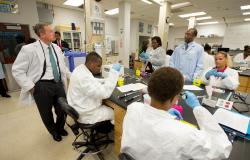
Digitalization, genome editing and synthetic biology are presently leading to fundamental changes in the field of biotechnology. At the same time, international regulatory institutions have largely failed to adapt to those changes. This text evaluates the role of interests, knowledge and institutional factors for explaining nonadaptation, or ‘institutional drift’. Focusing on the domains of biosafety, biosecurity and genetic resources, the analysis highlights the explanatory power of knowledge and, to a lesser extent, interests, with institutional factors playing only a minor role. With global governance having to cope with profound changes in various technological fields, the text thus shows the broader importance of understanding the conditions under which international institutions do, or do not, adapt.
Policy Implications
- Biotechnological innovation increasingly generates regulatory gaps that international institutions have so far failed to close.
- Insufficient knowledge constitutes a major explanation for institutional drift. The scaling‐up and centralization of scientific assessment processes would thus facilitate adaptation.
- International biosafety regulation requires minimum biocontainment standards and multilateral procedures for the potential release of gene drive organisms.
- In biosecurity, greater emphasis must be placed on bioweapons programs at the level of states relative to nonstate actors.
- Instruments that address the commercial and scientific utilization of genetic resources must reconcile the principle of fair and equitable benefit‐sharing with the new technological environment while avoiding regulatory overreach.